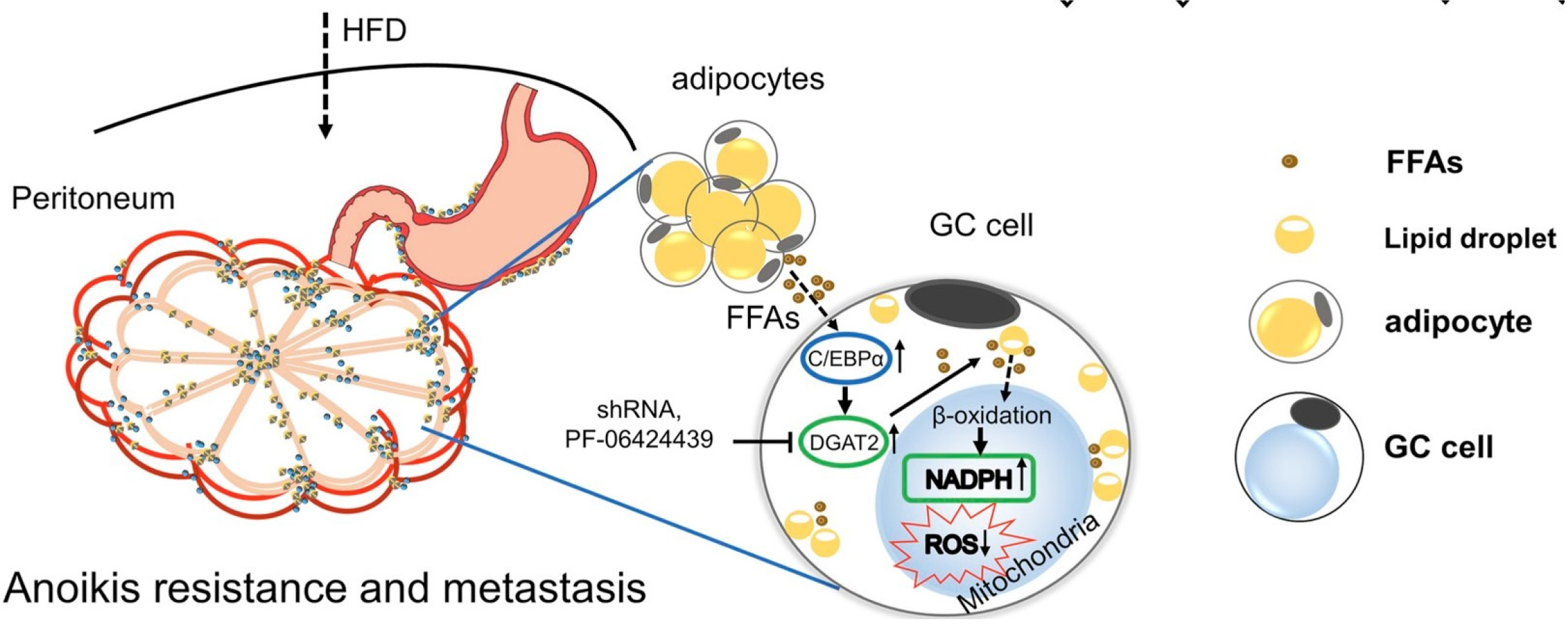Copyright
©The Author(s) 2025.
World J Gastrointest Oncol. Aug 15, 2025; 17(8): 106842
Published online Aug 15, 2025. doi: 10.4251/wjgo.v17.i8.106842
Published online Aug 15, 2025. doi: 10.4251/wjgo.v17.i8.106842
Figure 1 Schematic representation of the role of lipids in gastric cancer cell proliferation and metastasis[12].
A high-fat diet (HFD) promotes lipid accumulation in adipocytes, releasing free fatty acids (FFAs) that are taken up by gastric cancer (GC) cells. FFAs enhance lipid droplet formation via diacylglycerol acyltransferase-2 (DGAT2), regulated by CCAAT/enhancer binding protein beta (C/EBPb). Mitochondrial β-oxidation of FFAs increases NADPH and reactive oxygen species, promoting anoikis resistance and metastatic potential. Citation: Li S, Wu T, Lu YX, Wang JX, Yu FH, Yang MZ, Huang YJ, Li ZJ, Wang SL, Huang L, Lu L, Tian T. Obesity promotes gastric cancer metastasis via diacylglycerol acyltransferase 2-dependent lipid droplets accumulation and redox homeostasis. Redox Biol 2020; 36: 101596. Copyright© The Authors 2020. Published by Elsevier. The figure under the CC BY-NC-ND 4.0 License, which permits reuse with attribution, for non-commercial purposes, without derivatives (https://creativecommons.org/Licenses/by-nc-nd/4.0/). ROS: Reactive oxygen species; shRNA: Short hairpin RNA.
- Citation: Amir M, Bakht D, Bokhari SFH, Yousaf R, Iqbal A, Nazir H, Waleed M, Naqvi MZ, Tahir M, Dost W. Lipid metabolism-related genes in gastric cancer: Exploring oncogenic pathways. World J Gastrointest Oncol 2025; 17(8): 106842
- URL: https://www.wjgnet.com/1948-5204/full/v17/i8/106842.htm
- DOI: https://dx.doi.org/10.4251/wjgo.v17.i8.106842









